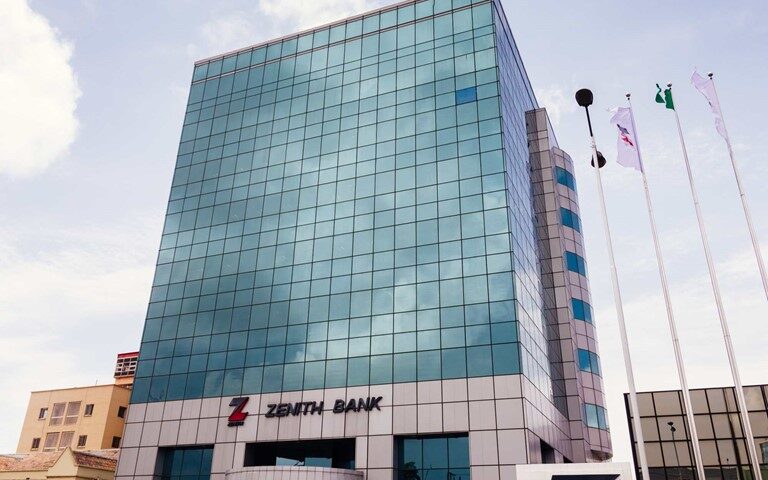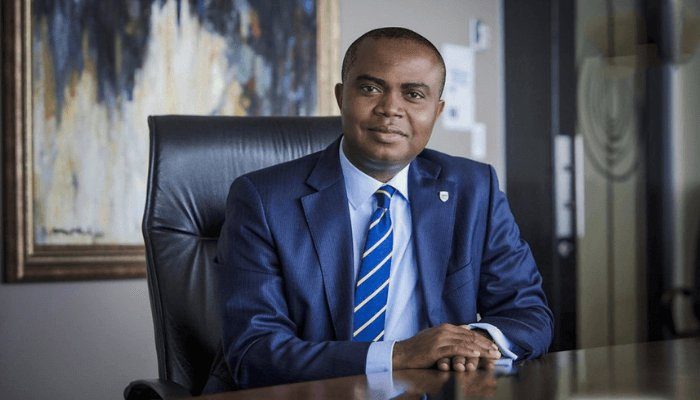In an interview with SaharaReporters, the woman’s husband, identified as Misbau, revealed that both his wife and infant daughter had now spent six months behind bars without trial, after their arrest during a #FreePalestine protest in Abuja. ArticlesRead More
Lokpobiri: Oil Sector Divestments Added 200,000 bpd to Nigeria’s Crude Output
Lokpobiri: Oil Sector Divestments Added 200,000 bpd to Nigeria’s Crude Output
•Seeks greater integration amid $4tn in Africa’s domestic capital
•Says continent spends over $120bn annually on hydrocarbons imports
•Highlights people, asset integrity, reliability as growth drivers
Emmanuel Addeh in Abuja
Amid recent divestments by International Oil Companies (IOCs), the Minister of State for Petroleum Resources (Oil), Senator Heineken Lokpobiri, has revealed that the takeover of some assets by indigenous firms has led to the addition of 200,000 bpd to the nation’s crude output.
IOCs such as Shell, ExxonMobil, TotalEnergies, and Eni have recently been reducing or selling off their onshore and shallow-water oil and gas assets in the country, shifting their focus to deepwater operations.
Lokpobiri, who delivered a keynote address on behalf of President Bola Tinubu at the Africa Energy Week (AEW) in Cape Town, South Africa, also highlighted the need for more cooperation among African countries to explore the roughly $4 trillion in domestic capital, including pension and insurance funds.
He outlined the bold policy measures implemented under the current administration, particularly the Petroleum Industry Act (PIA), which provides a clear and predictable fiscal and regulatory environment The PIA, he said, has laid the foundation for licensing transparency, host community engagement, strengthened regulatory oversight, and a fair contractual framework. “What makes Nigeria now different is the legal, regulatory, financial, and structural transformation we are delivering,” the minister said.
A statement yesterday by Lokpobiri’s spokesperson, Nneamaka Okafor, quoted the minister as declaring that Nigeria is “open for business” and actively pursuing policies that prioritise investment, efficiency, and long-term growth in the oil sector.
“This gathering is more than a conference, it is a call to action,” he said, stressing that Nigeria is ready not just to participate in the global energy market, but to lead reform and growth on the African continent.
“Nigeria’s upstream sector is showing signs of strong recovery. The Project ‘One Million Barrels initiative’, launched in October 2024, has raised daily crude oil production to between 1.7 and 1.83 million barrels per day, with a notable increase of 300,000 barrels per day in July 2025 alone.
“Additionally, the number of active drilling rigs has grown from 31 in January to 50 by July 2025, a clear signal that reforms are unlocking value across the sector,” he added.
Besides, Lokpobiri stated that the recent asset divestments by IOCs have unlocked over $5.5 billion in Final Investment Decisions (FIDs) within months.
“These are not just transfers of assets, they are transfers of confidence, capability, and ownership,” he stated. The divestments have already added approximately 200,000 barrels per day to national production, the minister said.
Speaking in the broader African context, Lokpobiri urged the continent to retain more value from its hydrocarbon resources by focusing on infrastructure, industrial development, and localised value chains. He noted that Africa spends over $120 billion annually on hydrocarbons, largely through imports, calling it a missed opportunity for economic transformation.
He advocated for stronger intra-African collaboration and financing, emphasising that Africa holds nearly $4 trillion in domestic capital, including pension and insurance funds. “The question is no longer about the availability of funds, but how we can channel them into productive investments on our continent,” he said.
Addressing the topic of the global energy conversation, the minister called for balance and equity. He insisted that the narrative must shift toward a diverse energy mix, not abandonment of any resource.
“The focus should be on availability, accessibility, and affordability of all forms of energy,” he stressed. He made it clear that Nigeria, like other nations, will continue to utilise its oil resources responsibly while building a diversified and sustainable energy base.
Lokpobiri reaffirmed Nigeria’s role as a leading energy player in Africa. “We are offering opportunities at scale, reform with consistency, incentives with clarity, local participation with respect, and a vision that modernises with purpose,” he declared.
He extended an invitation to global investors, urging them to come to Nigeria and “Be part of the energy revolution.” Lokpobiri explained that with strong reforms, ambitious targets, and an open-door policy, Nigeria is charting a bold path forward in Africa’s energy future.
Also speaking at the event, top officials of Seplat Energy Plc, a leading Nigerian independent energy company, which acquired some Mobil Producing Nigeria Unlimited (MPNU) assets recently, stated that the firm has raised more than $4 billion in debt to develop and grow operations whilst continuing to maintain a low leverage threshold of below 1.5x through the cycle.
Chief Executive Officer of the company, Roger Brown, said Seplat recorded unprecedented growth since it was founded by acquiring divested assets, unlocking value from them, improving efficiency and safety performance of the assets, whilst driving the entire growth process with a world-class and resilient workforce.
Brown, who spoke during a Fireside Chat titled “Assets Acquisition Success Strategies: Seplat Energy”, said the company has successfully integrated major acquisitions in the last decade, each time improving efficiency and safety performance, while at the same time reducing routine emissions.
Speaking on its most recent acquisition of MPNU assets, he said the goal had been to move quickly to re-engage wells and facilities – resulting in the delivery of immediate results; investing early in integrity and reliability – thus reducing downtime while setting a foundation for future growth; and integrating not isn’t just systems, but people.
“We found strong cultural alignment with our new colleagues, and that’s been key to seamless performance. We’ve welcomed their expertise and insights and the entire Group is benefiting from them,” Brown hinted.
According to the Seplat CEO, by combining Seplat’s onshore experience with decades of offshore know-how from new colleagues, the company has built a stronger operation from day one, which is already delivering higher cash flow.
“The recent reserves upgrade shows we have acquired a high-quality asset with significant production potential in both oil and gas, and much of this is within easy reach, close to export infrastructure that we control. We are confident we can increase production and that aligns with the government’s target to increase liquids production to 3 million barrels, and to increase gas production for both domestic energy and export markets,” he added.
Speaking of the company’s strong operator mindset, Brown said Seplat Energy focuses on acquiring assets where its operating capability can unlock hidden value – especially mature fields that benefit from a more agile, entrepreneurial operator.
“We’ve already proven we can acquire assets onshore and bring them up to high levels of production, whilst keeping tight control of costs, and this has helped us build up a strong balance sheet, invest in our future and return a healthy dividend stream to investors,” Brown stressed.
On the company’s clear appetite for success, the Seplat Energy boss said the focus had always been on safety and operational excellence, which are targeted at maximising production and cash flows that strengthen the business.
“We’re a low-cost operator, meaning we can be profitable at good oil prices and we’ve proven we can survive periods of low prices and prolonged lock-ins. We look after our staff, all of whom are very highly qualified, mostly Nigerian, and ensure they are fully aligned with our success, which in turn will bring success for Nigeria’s energy system. We’ve got a deep bench and a strong succession pipeline,” he explained.
In the same vein, Chief Financial Officer (CFO), Seplat Energy Plc, Eleanor Adaralegbe, who spoke during a panel discussion titled: “Financing Upstream Projects for Domestic Energy Security”, said since inception, the company has continued to blaze the trail with a highly successful capital raising history, of which the company had raised more than $4 billion in debt to develop and grow operations.
On the various financing options the company had leveraged since inception, Adaralegbe identified the Initial Public Offer (IPO), Revolving Credit Facility (RCF), Bonds, Advance Payment Facility, as well as other financings like taking over the $110 million RBL, which is currently being refinanced (on Eland acquisition of 2019; and putting in place a $320 million project financing for ANOH, Seplat’s 50/50 JV with the Nigerian Gas Infrastructure Company (a 100 per cent wholly owned subsidiary of NNPC).
Speaking on financing challenges and what Seplat Energy had done to overcome them, she said: “Corporates are always looking to access low-cost financing for development and growth, more so, Nigerian energy companies, as Nigerian banks have a high USD cost of borrowing. As such, we knew that we had to become a first mover and shape our credit profile to appeal to a wider group of banks and investors. We are the first and only dual listed Nigerian oil and gas company.”
On the company’s key credit highlights, the Seplat Energy CFO listed: Balanced assets with substantial production; portfolio diversification through gas business; uniquely positioned to capture future growth; strong financials and well-tested risk management; well managed liquidity; focus on tax efficiencies; experienced management and strong governance; and leading indigenous and ESG-focused operator.
“Seplat Energy has repeatedly been able to refinance to extend maturities and bring down our cost of debt while keeping leverage moderate. We have been able to do this because we are focused on things that lenders are focused on – asset diversification, steady production, strong financials, low leverage, focus on tax efficiencies, strong leadership,” Adaralegbe explained.
On the importance of financing, she said Nigeria’s energy security depended heavily on upstream oil and gas, which fuels both domestic consumption and foreign exchange earnings; declining investment in upstream projects due to global energy transition pressures and perceived risks; and rising domestic demand for gas and power requires urgent expansion of upstream activity, particularly gas exploration and production.
“Until utility-scale renewables, storage, and transmission are materially larger, Nigeria’s ability to keep lights on, vehicles moving, industries running, and households cooking cleanly is fundamentally constrained by upstream oil and gas development, output and associated midstream delivery – that is upstream development is a direct lever on national energy security,” she advised.
According to Adaralegbe, a stable and predictable fiscal framework is the single most powerful enabler of upstream financing; of which consistent application of PIA provisions, timely JV cash-call settlements, and clarity on commodity pricing policies are essential to de-risk projects and crowd in long-term capital.
•Seeks greater integration amid $4tn in Africa’s domestic capital •Says continent spends over $120bn annually on hydrocarbons imports •Highlights people, asset integrity, reliability as growth drivers Emmanuel Addeh in Abuja


